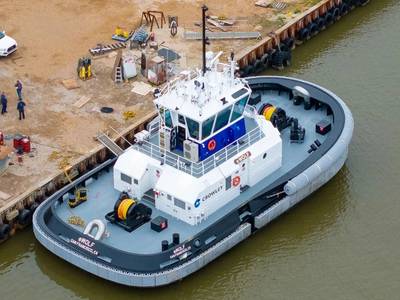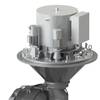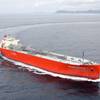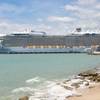Crowley's All-electric Harbor Tug eWolf Delivered
Crowley on Wednesday announced it has taken delivery of its groundbreaking vessel eWolf, the first all-electric, ship assist harbor tugboat in the United States.
The 82-foot tug, designed by Crowley’s engineering services team and built by Coden, Ala. shipbuilder Master Boat Builders, will enter service at the Port of San Diego this spring following final demonstration trials and completion of Crowley’s microgrid shoreside charging station. The vessel will operate with zero emissions while providing the complete performance capabilities of a traditional tug, Crowley said.
“The eWolf will provide services through its advanced vessel control technology and first-in-class energy features, while providing the safety, quality and reliability that Crowley and our mariners are known for,” said James Fowler, senior vice president and general manager of Crowley Shipping. “We are thrilled to reach this important achievement for our company and the U.S. maritime industry through the collaboration with our partners.”
“The eWolf demonstrates where the maritime industry can go, in terms of both innovation and sustainability, with solid partnerships between owners, designers, suppliers and shipyards,” said Garrett Rice, president of Master Boat Builders. “We are proud to have partnered with Crowley in the construction of the eWolf and look forward to seeing her at work in San Diego very soon.”
The eWolf is designed to operate on full electric power, producing zero carbon emissions and expected 70 ton bollard pull strength. The vessel is equipped with an integrated electrical propulsion package provided by ABB, a 6.2 MWh Orca battery energy storage system from Corvus Energy and two electrically driven Schottel RudderPropellers type SRP 430 LE (2,050 kW each) featuring propeller diameters of 2.5 meters. The vessel also has two small generators on board for emergency use and to enable long distance transits at a reduced speed.
The tug’s battery system will be charged at a specially designed shoreside station featuring two Corvus Orca BOBs (battery on board), the containerized version of the Corvus Orca ESS.
The vessel is designed to ABS class and compliant with U.S. Coast Guard Subchapter M regulations.
To bring the eWolf to life, Crowley partnered with the San Diego County Air Pollution Control District, the California Air Resources Board (CARB), the Port of San Diego, the U.S. Environmental Protection Agency (EPA) and the U.S. Maritime Administration (MARAD), which all provided financial support and other resources.
Vessel owners and operators are increasingly considering hybrid and fully electric vessels as part of efforts to reduce emissions.
Crowley said the eWolf will will generate 178 tons less of nitrogen oxide (NOx), 2.5 tons less of diesel particulate matter and 3,100 metric tons less of carbon dioxide (CO2) over the first 10 years of its operations – the equivalent of removing 350,000 gallons of gas from use, according to EPA calculations.
Crowley in 2021 announced its commitment to reach net-zero emissions across all scopes by 2050. The Jacksonville, Fla.-based company estimates it will reduce overall emissions by 4.2 million metric tons of greenhouse gases per year.











